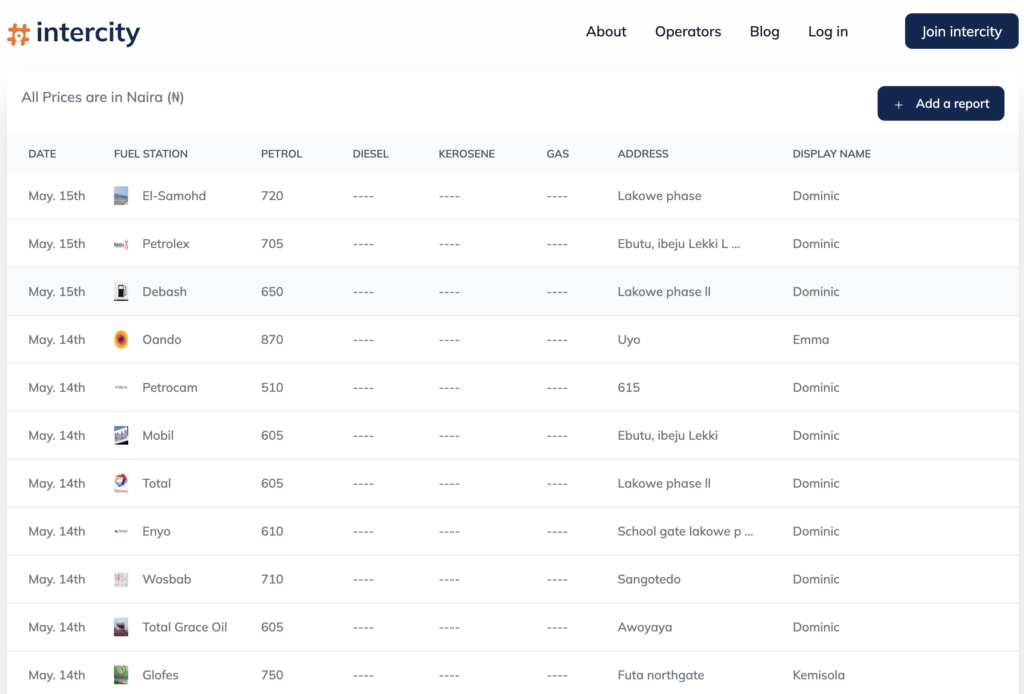
What’s the current price of fuel in your area? is the rising fuel price affecting you or your business? You’re not alone. Many Nigerians, including freelancers and transportation companies, feel the impact of fluctuating fuel costs
In this post, you will discover the current price of fuel in Nigeria, and the factors affecting fuel prices.
Here you go:
The fuel price today has been influenced by some factors which you’ll be learning in this post.
Today, petrol is an essential commodity for the average Nigerian, especially with the increase in the number of organizations taking the remote work-from-home route. People’s interests have shifted from physical workspaces to more refined ways of working.
This shift means that the scarcity and fluctuations in fuel prices now affect a larger population than they did in previous years.
But what exactly causes these fluctuations in fuel prices in Nigeria?
Is it the exchange rate?
Or is it the removal of fuel subsidy?
Related: The Top 11 Transport Companies in Nigeria
Current price of fuel in Nigeria Today
Over the past two weeks, there have been discussions across many states in Nigeria about the exact price of petrol at various filling stations.
Reports gathered from our fuel monitoring page indicate that some stations sold petrol at ₦1500 per litre, while others sold and are still selling it for an average of ₦700 – ₦900 per litre, as opposed to the initial ₦615 it was pegged at after subsidy removal.
According to The Punch, the removal of subsidy led to an increase in the pump price of petrol from about ₦198/litre in May to the current rate of ₦617/litre. However, the fall of the naira coupled with the rise in crude oil prices has continued to mount pressure on the cost of PMS.
The chart below displays real-time data on current fuel prices at various filling stations across the country.

Kindly, tell us what the current fuel price is in your location; simply click on the “add a report” tab here
Related: How to Start an Interstate Transport Company in Nigeria
Factors influencing the price of Petrol in Nigeria
Several factors influence petrol prices in Nigeria:
- Crude Oil Prices: Nigeria, as an oil-producing country, is greatly affected by changes in global crude oil prices. Fluctuations in international oil markets directly impact the cost of importing refined petroleum products.
- Exchange Rate: Since petroleum products are mostly imported in Nigeria, fluctuations in the exchange rate, especially the value of the Naira against major currencies like the US dollar, affect the cost of importing petrol.
- Government Policies: Government policies, such as subsidy removal or reintroduction, taxation, and regulations, play a significant role in determining petrol prices. For example, the removal of fuel subsidies can lead to higher prices at the pump.
- Supply and Demand: Supply and demand dynamics within the country also influence petrol prices. Disruptions in supply, such as pipeline vandalism or refinery issues, can lead to shortages and price hikes.
- Transportation Costs: The cost of transporting petrol from refineries or import terminals to petrol stations affects the final retail price. Factors like fuel efficiency, road conditions, and distance contribute to transportation costs.
- Refining Capacity: Nigeria’s limited refining capacity means that the country relies heavily on imported refined petroleum products. Issues with local refineries or their capacity utilization affect the availability and cost of petrol.
The Dangote refinery is poised to have a significant impact on the Nigerian economy and the petrol market. According to a report from Channels TV, once fully operational, the refinery will have a capacity of processing 650,000 barrels of crude oil per day.
It is anticipated to cater to Nigeria’s domestic demand for petroleum products, thereby reducing the country’s reliance on imports and saving much-needed foreign exchange. - Market Competition: Competition among petrol marketers, both major and independent, can impact prices. Major marketers often have more resources and better access to imported products, allowing them to control prices to some extent.
- Taxes and Levies: Various taxes, levies, and duties imposed by the government also add to the final price of petrol. These include import duties, Value Added Tax (VAT), and other regulatory charges.
Related: How To Book A Bus Online With Intercity
Conclusion
And there you have it! The factors mentioned in this article influence fuel prices in Nigeria Today.
What is the current price of fuel in your area today?” you can let us know immediately and contribute by clicking “add a report” on the fuel monitor chart to help us gather real-time data that will benefit others.
